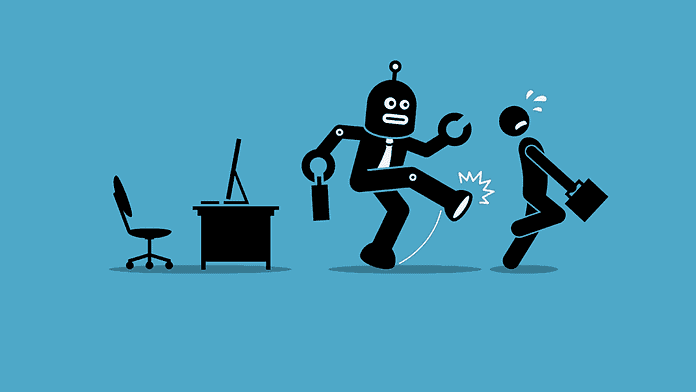Embracing the Future of Labor Today
Throughout history, labor has been a primary defining factor in human experience. For the majority of us, it is the task we dedicate the majority of our time and mental resources to each week. Labor, like everything else in our universe, is subject to varying degrees of change that bring along new sets of human-centric problems to solve. Unfortunately, history has taught us that resistance to change is almost as common as the change itself. The solution is to encourage the proactive embrace of our present shift from a manufacturing economic model to knowledge-based labor, linking labor, economics, and politics together to form new structures and ideas facilitate an evolution that is pluralistic. To prepare we should begin by understanding why we are here.
A Whole New World
Globalized trade and labor function on theories of global exchange between wealthy advanced economies and emerging economies with low-cost human labor. The historical relationship between the United States and China is one example that illustrates this point[1], the outsourcing of labor-intensive low-value goods has been a cornerstone of U.S. business strategy for decades. Putting aside the ethical and moral conversation about the conditions in which Chinese workers operate under for another article, this strategy has proven to be a useful model in the past.
Today U.S. tensions with China and other international trading partners grow, both because of the present administration’s policies and the transformation of global economies to a Knowledge Economy model. Knowledge Economies are ones where the most advanced form of productivity is highly skilled, highly transferable labor. Companies operating under Knowledge Economy models integrate production, research, and innovation into one continuous process that allows them perpetually transform the organization’s products and services.
What sets knowledge economy organizations apart is not strictly correlated to better outputs relative to inputs, but rather their ability to quickly rise to the top of a specific market niche and remain there. Consider Google as an example, their talent, technology, and operational culture give them incredible power to ensure that they stay at the forefront of innovation within their desired niche. Google’s position as an innovative leader is secure because within their organization innovation and production are linked as one.
Designing Uncertain Employment
While nothing mentioned in the above paragraph is news to any student of business or economics, the implications are compounding and disheartening. If we observe the present trajectory of labor it is clear that we are rapidly entering a space of permanent uncertain employment, often cited to as the “gig economy.” We can observe this shift around the world but especially in wealthy economies like the United States.
Politically the impacts of these economic shifts are already being felt and will only open up future opportunities for ill-intentioned abusers in the future as industry-wide disruption begins to occur more rapidly[2][3]. The old mass production economics models were the foundation of the same political thought and theory that we practice today. Proactively embracing these new economic models through innovations in our legal arrangements will help insulate ourselves from bad actors while simultaneously heightening our ability to address unexpected and immediate challenges.

Opening Access to Innovation
Continuous innovation is central to the best and most advanced practices and technologies today. The by-product is that ideal practices become concentrated in just a handful of companies. This isolation of knowledge is supported legally by property and contract laws written from a place in space-time and human consciousness that is not reflective of our present trajectory. In a sense, we are actively participating in the stifling of innovation and experimentation here in the United States — the exact opposite of what we would be doing under a proactive embracing of the Knowledge Economy.
I believe that a unifying purpose for every American should be to actively fight for the spread of Knowledge Economy practice and procedure to every productive vertical that can use it. We can approach this effort from numerous directions such as requiring large firms to develop free continuing education programs, revising patent laws, legally requiring finance to be tied to the real economy, and deepening cooperation between existing large firms and new innovators.
Opening up access to more people to learn, explore, and work with the most innovative technologies and techniques will significantly raise the floor that every innovator stands on. Imagine a new startup working in logistical technologies having access to Amazon’s proprietary patents and practice and being able to use them in their chosen direction. By revising patent laws to support new innovators over existing market giants we give ourselves the ability to expand beyond anything possible today.
If it sounds radical and incompatible with the present arrangements, you’d be correct. But what is the alternative? Do we continue to allow the select few companies to dictate all experimentation and innovation at the highest levels? No, we do not. That is a pathway to the dystopian future that we’re all tired of reading and seeing.
Our reality is that the future is not waiting for us; it is here. If we’re open to embracing the future of labor and acting in a way to create structural arrangements that empower innovation over profit we will provide ourselves more opportunity to express our productive power in the direction of our choice. In rejecting the past’s grasp on the present, we take a significant step towards a more pluralistic future that evolves proactively, without the need of crisis.
[1] Understanding the US-China Trade Relationship by Oxford Economics U.S. China Business Councilhttps://www.uschina.org/reports/understanding-us-china-trade-relationship
[2] Robots could replace 1.7 million American truckers in the next decade by Natalie Kitroeff The Los Angeles Times https://www.latimes.com/projects/la-fi-automated-trucks-labor-20160924/
[3] Japanese white-collar workers are already being replaced by artificial intelligence by David Gershgorn Quartz https://qz.com/875491/japanese-white-collar-workers-are-already-being-replaced-by-artificial-intelligence/